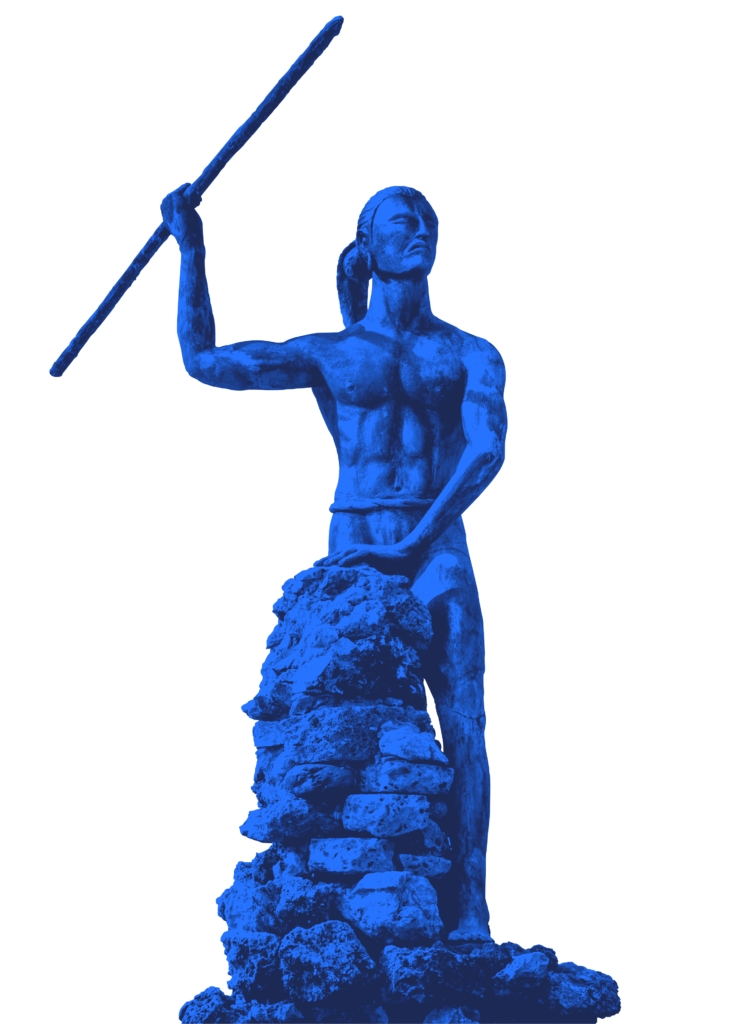
The Hatuey Project honors the Taíno chief Hatuey. He was from the island that later became Hispaniola. After actively opposing the Spanish colonizer’s cruelty against the Indigenous inhabitants, Hatuey organized 400 men who traveled by canoe to Cuba to warn the inhabitants there and urge their resistance to the Spaniard colonizers’ genocidal cruelty. After fighting guerrilla style against the Spaniards, Hatuey was captured on Feb. 2, 1512 and burned at the stake. The priest/historian Bartolomé de las Casas wrote this account:
When tied to the stake, the cacique Hatuey was told by a Franciscan friar who was present… something about the God of the Christians and of the articles of Faith. And he was told what he could do in the brief time that remained to him, in order to be saved and go to heaven.
The cacique, who had never heard any of this before and was told he would go to Inferno where, if he did not adopt the Christian faith, he would suffer eternal torment, asked the Franciscan friar if Christians all went to heaven. When told that they did he said he would prefer to go to hell.
Today, Cuba celebrates Hatuey as the first national hero and resistor of colonialism.
